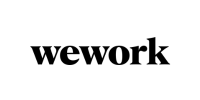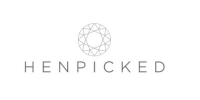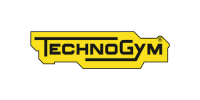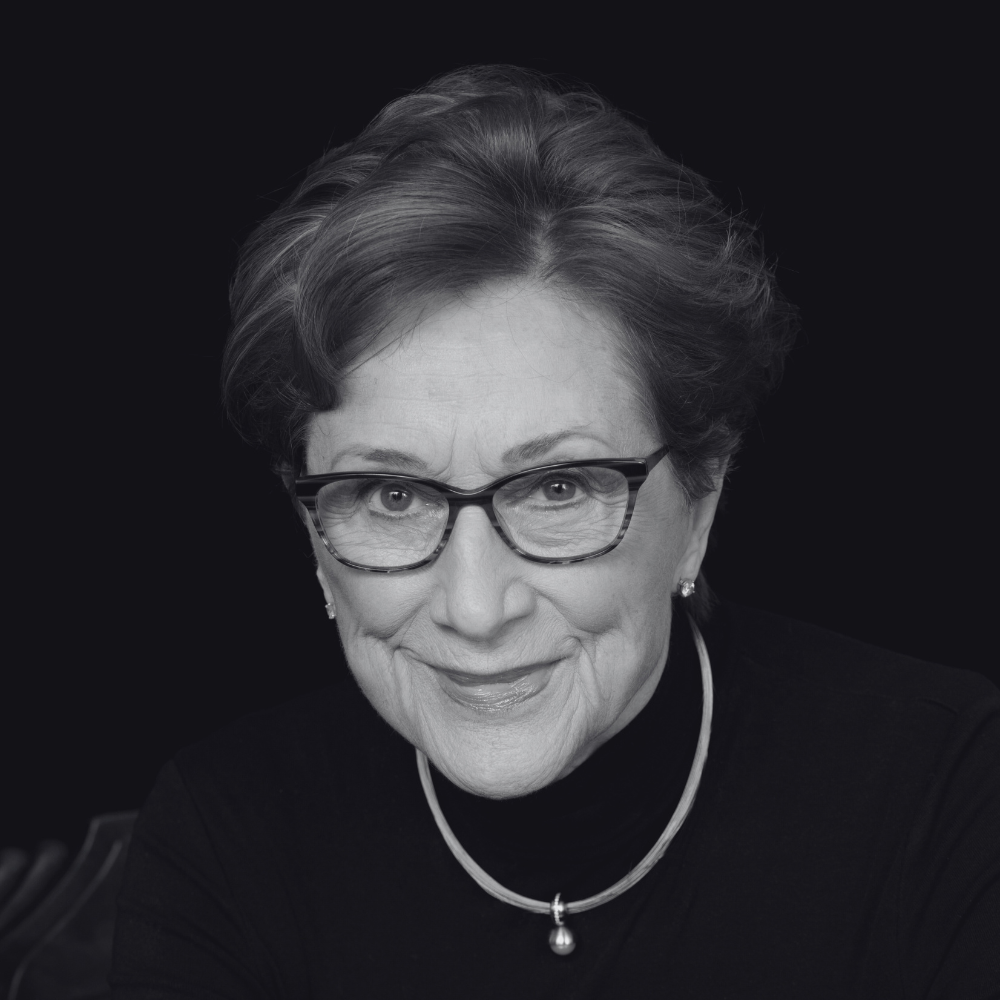Shaping the Future of Work: Wellbeing, Culture & Innovation in the Modern Workplace
The Watercooler Event is a vibrant two-day experience exploring effective ways to create workplaces that empower people to thrive. Join over 6,000 industry experts to exchange ideas, uncover transformative solutions, and celebrate the future of work.
Discover insights from industry leaders on evolving business and people strategies, network with like-minded professionals, and embrace innovative approaches to wellbeing, culture, and productivity.
Meet experts from the following disciplines:
- Wellbeing, Engagement & Mental Health
- HR & Culture
- Diversity, Equality & Inclusion (DE&I)
- Learning & Development
- Employee Benefits
- Occupational Health & Safety
Curating Collaboration with the UK’s Leading Organisations
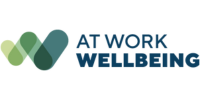
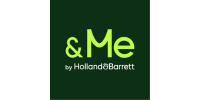

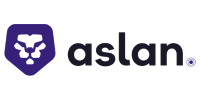
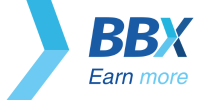
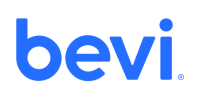


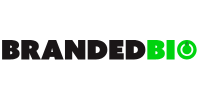


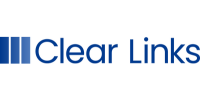







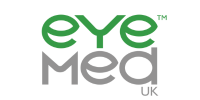
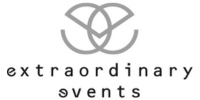
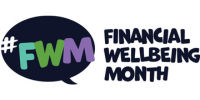

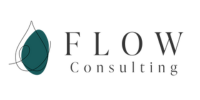
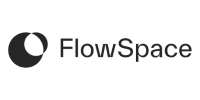







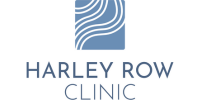
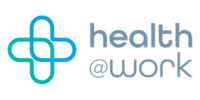



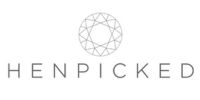






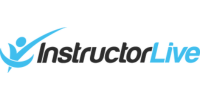

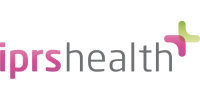
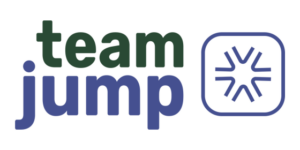
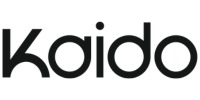





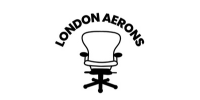
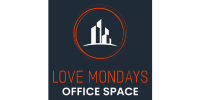


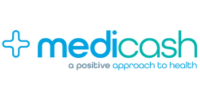


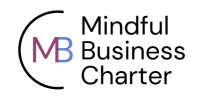
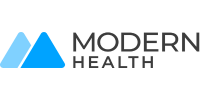




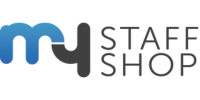




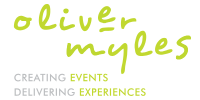

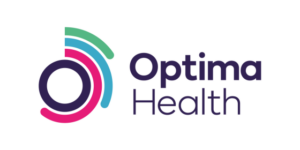




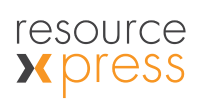

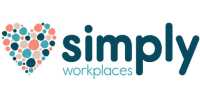
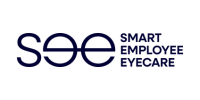




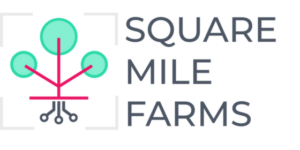



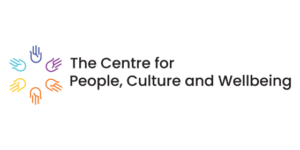








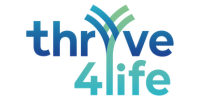


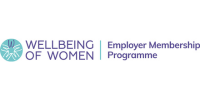



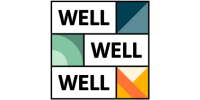
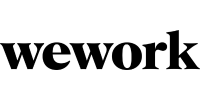


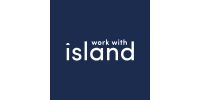













































































































































































































































AGENDA
Delivering actionable insights to accelerate cultural change.

Speakers
Visionary thinkers from a broad range of business sectors.

Leaders’ Club
The UK’s most innovative leaders.

Exhibitors
Innovative ideas & solutions to build better workplaces.
What’s On
The Watercooler Conference and exhibition content focuses on the key pillars of wellbeing, employee engagement and culture change to enable you to build a comprehensive, strategic approach for a more productive business. As well as a series of focused workshops, the 2025 event featured three parallel tracks running across both days. Now in its fourth year, the conference brings together some of the UK’s brightest and best.

Conference
Three track conferences running side-by-side featuring thought-leading speakers and influencers, it’s held as a ‘silent disco’ format for focused and uninterrupted discussion.

Workshops
Interactive workshop sessions held within the main exhibition hall, featuring deep-dive insight and solution partner case-studies and showcases.
Working Well Beings Podcast
Exploring the Stories of Wellbeing Leaders. This special edition series was recorded LIVE at the Watercooler 2025. Listen here.

Exhibition
The Watercooler exhibition is filled with leading solution partners who are at the forefront of helping businesses deliver workplace culture and wellbeing programmes.

1-2-1 Meetings
Fast-track your supplier and technology partner search via our 1-2-1 meetings programme. Just indicate your interest on the registration form and we’ll do the rest!

The Office
Get the full 360 Workspace and Workplace Experience at the gathering of workplace experts; Workspace Design, FM, Corporate Real Estate, Workplace Strategy and Property.
2025 Speakers

Dame Carol Black GBE

Peter Cheese


Mohammad Koheeallee


Ruth Jackson
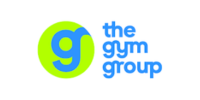

Astha Mittal
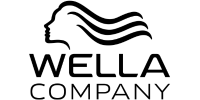

Jason Bloomfield


Carole Smets


Fiona McAslan

Latest Make A Difference News
While most workplaces offer mental health support on paper, the real challenge — and opportunity — lies in delivering the right help, at the right time, to those who need it most.
Recent research shows that between 79% and 88% of UK employers provide access to an Employee Assistance Programme (EAP), and 40% offer Private Medical Insurance (PMI). Yet absenteeism and presenteeism persist — and in many cases, the six sessions of counselling typically provided through EAPs are simply not enough.
Recently, Shamira Graham, Chief Commercial Officer, Onebright, sponsored a webinar. Here she elaborates on some of the far-ranging questions that were raised by the highly engaged webinar audience.
If you’re finding that the support available through your EAP or PMI falls short of meeting employees’ needs, you can access the recording of the webinar to understand how to address this ‘gap’ and find responses to some of these questions that were given by the other panels during the webinar here.
Q: Would Private Medical Insurance (PMIs) not cover mental health requirements?
If you are lucky enough to have PMI, then the answer would be yes. We know that only 12% of the population in the UK have got access to private medical insurers. That means a significant section of even large corporate workforces, don’t have this access. We also know SMEs typically don’t have as much provision as potentially large corporate organisations. So, when we’re talking about this notion of the gap, it’s about individuals who have got unmet mental health needs.
So, on the surface. Yes, if you’ve got PMI, this could be the solution. But equally we know here at Onebright, that is not reaching all the people that it needs to in terms of corporate mental health.
Q: Do you have any suggestions on subject specific support for staff?
We can offer several support pathways – gender health, menopause, andropause (male menopause) as an example, rumination, worry, mental health, awareness – across the whole mental health continuum. Our services can normalise when people are experiencing huge amounts of change, making sure that they are very clear about what pathways are available to them, how to access and reinforce that messaging.
It is important that as an organisation you broadcast your provision. Engagement rates are probably not where they need to be, so I say to businesses, be creative, and think about how you can support your staff through these periods of change now, whatever sector you might be in.
Q: How do you deal with language barriers?
From a Onebright perspective we have a large network of 3500 clinicians plus 150 clinicians employed, offering support in 49 languages. So, if there are any specific requests, then we can facilitate and we have managed to meet all language needs, and any additional accessibility needs.
Q: What is the panel’s opinion on mental health first aiders in an organisation?
I think mental health first aiders have their part to play. I think they can be a very effective way of stating an intention for an organisation that mental health is being taken seriously within the organisation. I personally train mental health first aiders. We know that from an evidence-based perspective the value comes in ongoing maintenance – training and creating peer support sessions on a very regular basis. So, if an individual has got a space with which to share with a mental health first aider, then they have a role to play.
But the danger is when people only invest in mental health first aiders and then when they exceed their remit, or their scope. They need to be clear about where they need to signpost and access more clinically professional support.
Q: You talk about the whole person services, and not everyone might get to a point to require psychotherapy, etc. or you want to intervene before they reach clinical severity from a prevention perspective. Are you offering health and wellbeing, coaching.to support the individuals at home as well as at work?
We all know that what happens before and after work can have an impact on a person’s productivity at work. There is obviously a place for wellness in terms of diet, sleep and exercise. At Onebright we don’t offer coaching. That isn’t what Onebright does. It’s a clinical organisation. What we offer is evidence-based training and early intervention and prevention solutions.
We would direct people to explore these via self-directed resources and high-quality psychoeducation. When we’re thinking about the ‘gap’ that’s about people that have got compromised mental ill health or ill health which are struggling to access the services that they need to at the time that they need to.
Q: At what point should an organisation bring in Onebright or a clinical solution? Is it when someone has the needs, or should it be part of a well-being strategy?
I would say both. We recently launched a Onebright rapid access service which gives an employer the option to refer one employee or multiple referrals. We sit behind all the private medical insurers, group income protection, EAP, etc. And so, we receive, for example, some of those providers send us 150 patients a day. But what we realised is there is this ‘gap’. So, we’ve now created a service where you can send us one patient or equally hundreds.
Q: Some PMIs only help through their EAP, but then the EAP side fails to support, and individuals must go privately for their needs to be met. Should PMIs offer support where the individual has a choice of where to go?
Some people can go to the end of their provision and then choose to self-fund or go to the end of their provision, and then we can help facilitate a referral into statutory services. So, I would say, just come and have a chat with us, and we can see if we can help on that specific point as well to make a better joined up pathway.
We work directly with PMIs and corporates, as well as cash plans. So, we are happy to have a discussion around that and try and unpick that for you. Please reach out to commercial@onebright.com and we arrange a call.
Bridging the gap: smarter strategies for workplace mental health – your burning questions answered
Employers are taking a “serious strategic risk” if they don’t consider AI hand in hand with Health and Wellbeing, so says Louise Aston, former Wellbeing Director at Business in the Community, and now a Wellbeing consultant.
Here we consider 5 psychosocial risks of AI and how to mitigate them.
Risk 1: the anxiety and fear being caused by AI
With major firms like Amazon, Microsoft, Vodafone, and now the UK’s Big Four accountancy firms automating entry-level roles, valid fears about job loss are rising. But even where jobs aren’t at risk, the uncertainty is causing stress.
“The real stressor isn’t AI,” says Aston. “It’s the uncertainty. Ambiguity breeds stress and lack of understanding, and those lead to disengagement and even pushback. Employees need clarity on how AI fits into their jobs and how it can augment their role rather than making them redundant. That makes clarity and confidence absolutely critical.”
Mitigation:
- Build AI literacy: Train staff on safe, effective use of AI tools and how it supports (not replaces) their role
- Embed wellbeing into AI strategy: Risk-assess impact on workload, autonomy, and stress
- Lead with transparency: Create psychologically safe environments where people can raise concerns and explore AI together
Risk 2: Employers having higher expectations of employees delivering more but without more real support
There’s a danger that access to AI leads to unreasonable productivity targets.
“It becomes a race to the bottom,” warns Dr Shaun Davis, Chief Adjudicator at the British Safety Council, and Group Safety, Health and Wellbeing Director at Belron. “The more people use it, the more the quality goes down and the less satisfied in their work people become. Don’t trade off talent for a quick AI win. It will backfire.”
The backfiring is already being seen, according to research, in the form of ‘AI burnout’. Around 77% of workers in the US, UK, Australia and Canada, for instance, feel that AI has decreased their productivity and increased workload, according to Business Insider. Other research cited by the FT argues that AI is actually eroding collaboration between colleagues and leading to increased isolation, information overload and mental fatigue.
Often, the issue is poor implementation: Upwork reports workers now spend 39% of their time checking AI outputs, and 23% figuring out how to use the tools.
Mitigation:
- Train and support: Ensure consistent, confident use of AI
- Manage expectations: Adjust productivity goals realistically
- Watch for burnout: Track emotional wellbeing and capacity
- Prioritise human connection: AI can’t replace compassion
Risk 3: Isolation being caused by AI
Overreliance on AI tools can reduce social interaction. A Journal of Applied Psychology study links high AI use to loneliness, insomnia, and even increased alcohol use.
As Davis says: “I can’t imagine coming into work and not having humans around to fill up my soul bucket with a bit of humour, or an arm around my shoulder if I needed it.”
Matt Grisedale, Senior People Champion, energy firm E.ON, agrees, arguing that “AI cannot do compassion or collaboration”:
“It can’t understand that a human made a mistake because they were struggling with problems at home, or had a death in the family. We need to build roles on those people-related elements. We need to use AI to reignite passion in human skills like collaboration and have conversations so we can understand where different people are coming from.”
Mitigation:
- Create space for collaboration that’s not AI-driven
- Build community and trust into teams
- Encourage dialogue and difference to avoid groupthink
Risk 4: Creativity loss
Spiritual teacher Eckhart Tolle says that true creativity and solutions to problems arise from a state of inner stillness. But if we’re always asking ChatGBT for guidance, how can we find that stillness?
As Davis jokes:
“Isaac Newton sat under a tree and an apple feel on his head. He then reflected on gravity and that fact that what goes up, must come down… leading to new insights. If he’d had ChatGBT what would it have said? Perhaps it would have cut his thinking short and just told him ‘apples fall from trees’ and that would have been taken as gospel and the end. Slightly silly example but what I’m getting at is these great thinkers became so because they thought for themselves.”
Mitigation:
- Encourage critical thinking and questioning
- Ask AI for alternative views
- Treat AI as a springboard, not a shortcut
Risk 5: Deskilling and loss of agency
AI can erode personal agency and satisfaction.
“Answering a question with ChatGPT isn’t the same as the pride I had in researching my PhD,” says Davis. “Doing the research myself and having to review the literature meant I developed my own point of view. There’s a sense of satisfaction in that.”
With AI taking over so many of our day-to-day jobs, or doing them at the activation of our voices, we risk losing the ability to function well without it. We also risk feeling out of control if AI doesn’t work for any reason, a feeling that is well documented as linked to poorer wellbeing.
Davis says it doesn’t take much to imagine a situation in which humans have “become completely paralyzed because they don’t know how to do any of the things they might have been able to do in the past” from putting a wash on at home to using machinery at work.
But the biggest risk, potentially, in terms of deskilling is humans losing their ability to think. Just as many of us have lost our ability to read a map and remember directions with the advent of mobile sat navs, the same could happen with thinking.
Dr Robina McCann, VP Health at AngloAmerican, agrees, saying that the biggest “danger” of AI, for her, is “if we switch our brains off”:
“Brains are like a muscle. They need to be used. If we don’t use them, we will lose that ability. We need critical thinkers who can look at AI and question it. People need to understand AI is not ‘the’ silver bullet. It’s not going to fix everything. I will absolutely continue to prioritise my creative, human thinking after which I will consult with AI to get its opinion, too.”
Davis says that his many worry is that “there are many people out there turning to AI to get a view which they then regurgitate out as their own”.
The result? A potential veering towards homogeneity as AI starts to dictate opinions on a mass level and, possibly, a loss of some of our humanness and, therefore, identity. (Don’t get me started on what that means for acceptance of difference – that’s for another piece!).
Mitigation:
- Keep humans in the loop
- Promote hands-on learning and self-directed work
- Help staff stay connected to their skills and value
As Descartes (kind of) said: We think, therefore we are. In an AI-driven age, protecting our ability to think might be our most vital wellbeing strategy of all.
You might also like:
5 Psychosocial risks of AI you need to know about
Many wellbeing initiatives within organisations are aimed at office-based staff—overlooking the large sections of the workforce who don’t work behind a desk. At Ridgeflow Performance, we’ve supported thousands of frontline, shift-based, and non-office-based workers across sectors and countries.
From over 300 supermarket teams across the Baltics with Rimi Baltic, to warehouse and retail staff at ASICS in over 18 countries, to manufacturing staff across 10 countries with a global pharmaceutical company, to school support teams including engineers, gardeners, and cleaners—we’ve developed deep insight into what works, what doesn’t, and how to make wellbeing genuinely accessible for people without predictable workdays.
Here’s how we do it.
Step 1: Start with a real needs analysis
Before jumping into solutions, the first—and most important—step is to understand the needs of the people you’re trying to support.
Wellbeing isn’t one-size-fits-all. Frontline staff face different pressures in different environments. Some stress may stem from workload, others from home life. Some may feel physically unwell, others may struggle with poor sleep or inadequate recovery time. Some may lack psychological safety at work or feel unsure about how to access the benefits already available to them.
That’s why a robust needs analysis is essential. This should include:
- Quantitative surveys: To assess levels of work-related vs. non-work-related stress, psychological safety, physical health (e.g. musculoskeletal concerns), nutrition, sleep, recovery, and perceptions of current benefits. Make sure these are translated into their first languages if possible. We use professional translators, but with AI this can be a very easy task.
- Focus groups and interviews: To explore more nuanced themes—what’s working, what’s missing, and how support could be more accessible.
- External facilitation: Using a trusted third party increases honesty, protects anonymity, and leads to more actionable insights.
In each of the organisations we’ve supported—from a courier firm in London to manufacturing teams in 10 global markets—this initial diagnostic phase helped build trust, reveal the unique needs of different staff groups, and guide what kind of support would actually land. It also provided a data baseline to measure the impacts of initiatives.
Only once we’ve understood the context can we deliver the kinds of support outlined in the next step.
Step 2: Offer flexible support that actually fits their lives
With office staff we often hesitate to offer this, based on low engagement rates. On-demand support has been a game-changer in these contexts, however. Our tailored e-learning modules allow staff to engage at their own pace, on their own time, in privacy—even if that’s on a break or after a shift. We’ve rolled this out across business networks like BIDs and Active Partnerships, supporting staff from retailers and restaurants to charities and film crews.
Where live interaction is valuable, virtual workshops have been the most inclusive format. We’ve seen this particularly in public sector and NHS settings. For example, working with the NHS North East and North Cumbria Integrated Care System—home to 170,000 staff—we ran over 50 tailored virtual wellbeing workshops. Many sessions, especially manager and wellbeing champion training, had waitlists due to demand.
When feasible, in-person training also has a role—particularly when built into existing team meetings or development days – which worked well with specific directorates in the British Red Cross. But the emphasis remains on adaptability and respect for time pressures.
Step 3: Localise and humanise communication
One insight we’ve gained is that even the best-designed session won’t get attendance if no one hears about it.
For a major facilities company whose cleaning teams work across 50 WeWork sites, we ran a wellbeing strategy programme supported by the Design Council and Impact on Urban Health. Engagement in wellbeing surveys exceeded 85%—thanks to a multilingual, multi-channel awareness campaign across WhatsApp, posters, manager meetings, and internal comms, in both English and Spanish.
However, high signups to live workshops didn’t always translate to attendance—staff were often pulled away last-minute or simply forgot. This confirmed what we’ve long believed: effective communication is about timing, repetition, relevance, and visibility. And then tailoring and updating the support to match the realities on the ground.
Step 4: Get local manager buy-in (or risk wasting effort)
One of the biggest lessons? Even the best communication and senior leader buy in won’t stick if managers on the ground aren’t reinforcing it.
In the facilities management company’s case, some cleaning staff were keen to attend wellbeing sessions, but weren’t encouraged—or even allowed—to leave their duties to attend workshops or other wellbeing support by the managers on the ground (even though senior leaders in head office were very much bought in). This isn’t a one-off issue. Again and again, we’ve seen that local manager buy-in is critical. Managers set the tone. If they champion wellbeing, staff feel they have permission to engage.
That’s why we don’t just train frontline teams—we also train their managers at all levels. Our Wellbeing Training for Managers is CPD-accredited and equips leaders with the tools to support team wellbeing without compromising performance. Because ultimately, it’s not just about offering support—it’s about enabling it.
Step 5: Peer support that scales
In high-turnover, low-margin environments, ongoing external support can be difficult to sustain. That’s where peer support through Wellbeing Champions comes in.
Training proactive champions who understand the day-to-day realities of their teams—because they live them too—has proven to be one of the most effective ways to build wellbeing into the fabric of an organisation. Being picky with who becomes a champion here is very important. With Asics EMEA we designed a voluntary job description for staff to apply and commit to the voluntary role after being trained which proved effective.
Across multiple projects, from NHS Trusts to cleaning teams, we’ve helped organisations identify, train, and support internal proactive wellbeing champions who can sustain the momentum from within.
Step 6: Real results and key takeaways
What’s worked?
- Over 99% of attendees across sectors say they’d recommend our sessions to others.
- Needs Analysis engagement rates have been as high as 85%.
- Most organisations returned for further training or ask for bespoke support after seeing measurable positive impacts.
- Feedback and engagement rates consistently highlight the importance of tailored content based on role type and real-life challenges.
But it hasn’t all been smooth. A key learning from our NHS ICS work was that even great content (like e-learning training videos) can go underutilised by specific departments if staff don’t know they exist. Internal promotion matters. Visibility matters. Manager reinforcement matters.
Conclusion: Wellbeing that works in the real world
We often say that wellbeing isn’t about bean bags and yoga classes. It’s about giving people the tools, support, and environment to stay healthy, focused, and fulfilled in the context of their actual work and preferences.
For frontline staff—those without desks, with limited time, working under pressure—this requires a very different approach. It demands flexibility, creativity, and a deep respect for their lived experience.
But when it’s done right, it works. Wellbeing support can reach the people who need it most—and make a real difference.
Want to make wellbeing work for your frontline teams? Start by listening to them. Then tailor your support to fit their world—not yours.
About the Author

Khalil Rener is the founder of Ridgeflow Performance and a top-tier leadership consultant, performance coach, and wellbeing expert. With a BSc and MSc in Sport and Exercise Science from Loughborough University, his work focuses on applying the principles of elite sport to help people and teams thrive at work. Khalil has supported organisations including DP World, Novartis, the NHS, Deloitte, NatWest, Sport England, and many more—from global companies to schools, councils, and frontline teams. His breadth of experience spans industries, team sizes, and career stages, from senior leaders to students and early-career professionals.
You might also like:
CASE STUDY: How we made wellbeing work for frontline staff without desks or time
In a world of constant change and constrained resources, one thing remains true: your people are your biggest asset. Yet, organisations too often repeat the same pattern launching training that fails to solve root problems, are easily forgotten and do little to support wellbeing.
It’s time to rethink how we grow capability, not just deliver content. Training isn’t just about learning, it’s a strategic driver of culture, capability and resilient performance.
In this article, I share why reframing training as a strategic lever, rather than simply a learning function, can unlock powerful outcomes for both wellbeing and performance. I’ll walk through how to apply the Training Cycle with impact, share key principles for embedding wellbeing into learning, and include a real-life case study showing how one organisation made significant gains in morale, performance and confidence without launching a separate wellbeing initiative.
The big shift: wellbeing as a byproduct of great training
Contrary to common belief, improving employee wellbeing doesn’t always require standalone wellbeing programmes. While targeted mental health initiatives can be highly effective with Deloitte reporting that every £1 invested in mental health support can have a ROI between £5 and £11 (Deloitte, 2024), there is another, often overlooked route to impact.
The real opportunity lies in how we design and deliver training. When done strategically, wellbeing emerges as a natural outcome of great training, particularly when it’s aligned to business realities, embedded in team culture and reinforced through day-to-day practice.
Wellbeing improves when training is:
- Rooted in real business needs
Training that addresses actual data-driven challenges such as high absence, turnover or performance dips creates the space to tackle the pressures that fuel burnout and poor performance. - Tailored to real-world job pressures
Programmes that reflect the reality of specific roles (e.g., customer-facing stress, remote working, time demands) are more engaging, relevant and effective. - Reinforced in operational settings
When learning is followed up through coaching and peer support it’s more likely to lead to behaviour change and less likely to feel like “extra work.” - Supported by leadership and culture
When managers model wellbeing-positive behaviours (like boundary setting, open conversations and clarity), the learning sticks and builds a positive business culture. - Grounded in psychological safety
Training that enables trust, open dialogue and emotional literacy creates safer spaces where people feel seen, supported and empowered.
In conclusion, wellbeing isn’t just something we train about — it’s something we build through how we train.
When training delivers more
The table below highlights how general training programmes at well-known global companies have led to measurable gains in employee wellbeing.
| Training Focus | Wellbeing Outcome |
| Line Manager Development focusing on improving behaviours through coaching, feedback & empathy. (Google) | ↑ Psychological safety, ↓ burnout |
| ‘Growth Mindset’ culture shift training leaders in coaching, communication and accountability. (Microsoft) | ↑ Resilience, ↓ micromanagement |
| Inclusive leadership, emotional intelligence and psychological safety training. (Accenture) | ↑ Inclusion, ↓ presenteeism |
| Team collaboration development with a focus on collaboration, conflict resolution and communication. (Cisco) | ↑ Connection, ↓ stress, ↓ turnover |
The training cycle: your framework for strategic impact
The Training Cycle is a five-stage model used by L&D teams to create effective learning for business impact. But for leaders, it is so much more than a learning framework. It is a strategic tool to drive change, embed wellbeing and improve performance. By providing a clear structure for designing, delivering and evaluating training. The training cycle ensures that every intervention delivers measurable outcomes where they matter most.
- Training Needs Analysis – A solid TNA ensures relevant, targeted and focused training aligned to business strategy. Don’t skip this stage! The deeper the insights here the more effective the next steps in the cycle will be.
- Training Design – Insights from the TNA are used to define learning objectives and influence training that has purpose, is role specific and outcome focused.
- Training Development – Build engaging, and interactive content that reinforces learning. Don’t overlook the value of pre- and post-learning activities to extend the impact beyond the session.
- Training Delivery – Deliver content in formats that fit your learners and enable maximum engagement. Consider workshops, digital modules, peer learning or blended methods.
- Training Evaluation & Follow Up – Measure what matters (and think about this too at the TNA stage) Track behavioural change, performance and wellbeing outcomes. Use this data to demonstrate ROI, continuous improvement and measurable business outcomes.
Case snapshot: from burnout to better business
A national logistics firm faced rising stress-related absence, low morale and inconsistent customer experiences. Instead of launching a standalone wellbeing programme they used the training cycle to redesign their operational training that had wellbeing embedded and viewed as a strategic outcome.
How they applied the training cycle:
- Training Needs Analysis (TNA): They reviewed absence data, customer complaints and used pulse surveys. It was highlighted that confidence, pressure handling and lack of clarity in escalation as the key challenges.
- Design: Creation of a tailored programme, Resilience in Real-Time, focused on de-escalation, boundary setting and workload management. Learning outcomes were mapped to service KPIs (complaints, NPS, attendance).
- Development: Training was built in short and practical formats that included 90-minute workshops, learning labs, and a digital hub with cheat sheets and scripts. The formats ensured easy access of material and relevance across teams.
- Delivery: Embedded learning via peer “champions,” coaching check-ins at weeks 2, 4 and 8 and CRM-integrated prompts to reinforce learning in the flow of work.
- Evaluation: The tracking of metrics pre- and post-training as well as during was considered. Collation of manager feedback and pulse data confirmed a clear shift in team confidence and behaviour.
Results:
- 15% reduction in absenteeism
- 8% improvement in average customer handling time
- 22% increase in team confidence
They didn’t set out to build a wellbeing programme. They redesigned operational training and wellbeing improved as a result.
Training mistakes that cost you impact
| Pitfall | Why It Fails |
| Skipping TNA | Solving the wrong problem leads to wasted time and budget. |
| One-size-fits-all | Generic content disengages employees. |
| No follow-through | Relevance of learning in the workplace disappears without reinforcement. |
| No evaluation | You can’t prove ROI without metrics. |
| No strategic link | Training without alignment is seen as a ‘nice to have’ and you will be back to square one (or No. 1 of the cycle!). |
Why this matters to business leaders
Strategic training delivers measurable business outcomes. It’s not just about developing skills — it’s about strengthening the entire culture of performance.
- Reduced Absence and Turnover – Well-designed training supports mental health, improves coping strategies, and reduces stress-related absences.
- Improved Engagement and Retention – Employees who feel invested in are more likely to stay, contribute, and thrive.
- Greater Productivity and Innovation – High wellbeing teams are more collaborative, focused, and creative.
- More Resilient, Agile Teams – Training supports adaptability and faster recovery during change or crisis.
- Stronger Alignment to Strategy – When training aligns with DEI, ESG, and talent strategy, it reinforces long-term goals.
Leader takeaway: make training work harder
Training is not the intervention — it’s part of the system. Every initiative becomes an opportunity for wellbeing, capability and long-term performance when approached strategically.
What You Can Do Next:
- Insist on data-informed Training Needs Analysis
- Ensure training links directly to business goals.
- Reinforce learning over time, not in one-off events.
- Define success metrics and track them visibly.
- Collaborate across HR, L&D, and leadership teams to embed wellbeing.
Training done right doesn’t just teach skills — it shapes the way your organisation performs, adapts, and supports its people for the long term. To learn more on this topic, you are welcome to join our next live free event: How to Focus Your Training on What Really Matters: Business Impact, Goals & ROI.
About the author:

Davina Jenkins is the Workplace Wellbeing Delivery Consultant at SuperWellness, a company with a mission to unlock the full value of workplace wellbeing with one integrated, tailored solution encompassing strategy, training and health promotion. With an MA in Human Resource Management and over 15 years previous experience supporting business leaders through CIPD qualifications, Davina hosts regular free online events on different aspects of training
References:
Bakker, A.B. and Demerouti, E., 2007. The Job Demands–Resources model: State of the art. Journal of Managerial Psychology, 22(3), pp.309–328.
CIPD, 2023. Health and Wellbeing at Work Report 2023. [online] Chartered Institute of Personnel and Development. Available at: https://www.cipd.org [Accessed 26 Jun. 2025].
Deloitte, 2024. Mental health and employers: The case for investment. [online] Deloitte. Available at: https://www2.deloitte.com [Accessed 26 Jun. 2025].
Google, n.d. Project Oxygen: Building better managers. [online] Available at: https://rework.withgoogle.com [Accessed 26 Jun. 2025].
Hesketh, I. and Cooper, C.L., 2022. Wellbeing at work: How to design, implement and evaluate an effective strategy. 2nd ed. London: Kogan Page.
Microsoft, 2023. Growth Mindset and Culture Change at Microsoft. [online] Available at: https://news.microsoft.com [Accessed 26 Jun. 2025].
Accenture, 2023. Inclusion and diversity: Creating a culture of equality. [online] Available at: https://www.accenture.com [Accessed 26 Jun. 2025].
Cisco, 2022. Employee experience and team collaboration strategy. [online] Available at: https://www.cisco.com [Accessed 26 Jun. 2025].
SuperWellness, 2024. How to focus your training on what really matters: Business impact, goals and ROI. [internal presentation].
SuperWellness, 2024. 5 Steps to Building a High-Performance Team. [internal presentation].
Warwick Business School, 2024. Mental health training ROI research summary. [online] Available at: https://www.wbs.ac.uk [Accessed 26 Jun. 2025].
SuperWellness Internal Case Study, 2024. Resilience in Real-Time: Logistics Sector Training Redesign. [internal case study].
You might also like:
Creating business impact through people: the strategic role of training to drive wellbeing and high performance
In a recent Harvard Business Review study, therapy emerged as the number one use case for generative AI. Not productivity, not content creation, but therapy. This finding may come as a surprise to some HR leaders, but it reflects something many employees already know; when support is hard to access or stigmatised, people turn to what’s immediately available. Increasingly, that means ChatGPT.
A surprising new trend in AI use
As generative AI tools have become more conversational and accessible, employees are beginning to use them as a first port of call for emotional support. The appeal is understandable; AI is always available, non-judgemental and anonymous. For someone navigating anxiety, stress, or loneliness, it can feel easier to confide in a chatbot than a line manager or a formal support service.
This trend should prompt concern. Not because people are seeking help, but because they’re seeking it from a tool never intended to provide it. ChatGPT is a general-purpose AI trained to predict language patterns. It is not trained to manage mental health risk, detect clinical red flags, or respond safely to someone in distress. It does not have the oversight, traceability, or clinical safeguards needed to ensure that conversations do more good than harm.
What the regulators are saying
Recent guidance from professional bodies supports this caution. The American Psychological Association has issued warnings about the use of generative AI in mental health contexts, citing the absence of safety frameworks and the real potential for harm. They raised explicit concerns about AI tools being used for therapy without clinical validation.
In the UK, the Medicines and Healthcare products Regulatory Agency (MHRA) is moving toward reclassifying even gentle wellbeing interactions as medical-grade interventions. That includes metaphorical exercises such as “write your thoughts on a leaf and watch it float away.” Under new guidance, these will soon be regulated as Class 2A medical devices, a shift that reflects growing recognition that mental health tools, even digital ones, carry real risk if poorly designed.
What these developments point to is a critical distinction between AI that is trained to talk and AI that is trained to care. Between models optimised for engagement and those designed for safety. Between content generation and clinical support.
What should employers take from this?
First, if therapy is the top reported use of generative AI, it’s reasonable to assume that employees in your organisation are experimenting with it in this way. It’s not just tech-savvy Gen Z employees, either. The comfort with digital tools now spans generations and geographies. This behaviour doesn’t signal recklessness; it signals unmet need. People are looking for support that’s easy to access, stigma-free and available in the moment they need it.
Second, the response shouldn’t be to restrict access to general AI tools outright, but to offer safer, clinically governed alternatives that meet employees where they are. This means looking for mental health tools that are:
- Clinically validated: backed by research, with evidence of efficacy across diverse populations.
- Designed with clinician oversight: involving psychologists and therapists in both development and risk governance.
- Transparent in how they work: with explainable AI models, not just opaque deep learning systems.
- Built for privacy and compliance: adhering to data protection standards like ISO 27001 and HIPAA.
- Ethically governed: with no data monetisation and no third-party sharing without informed consent.
- User-centred: offering full control over personal data, including the ability to delete it easily and at any time.
An opportunity to meet employees where they are
There is also an opportunity here. When safe, scalable tools are introduced, they don’t just reduce the risk of harmful AI use. They increase uptake of support overall. We know that a large proportion of employees never engage with traditional mental health services due to stigma, cost, or time. Digital tools that feel informal, anonymous and immediate can help bridge that gap, provided they are purpose-built for the task.
This is not a case of being anti-AI. On the contrary, the right kind of AI can play a powerful role in workplace wellbeing. It can triage needs, offer self-guided support and connect people to human care when needed. It can scale in ways human services cannot, extending reach without compromising quality, but only when safety and ethics are the starting point.
As generative AI becomes more embedded in daily life, the challenge for employers will be to distinguish between what is available and what is appropriate. Employees will continue to explore new tools in moments of vulnerability. The best response is not to judge or block that behaviour, but to ensure that when someone reaches for help, they find something designed to hold that moment safely.
Look for tools that adhere to clinical standards, involve mental health professionals in their design and are transparent about their use of AI. These are the indicators that the technology is not only engaging, but trustworthy. In a world where emotional support can be a chat window away, that difference matters.
A final thought
HR leaders are not expected to become AI experts, but in this rapidly shifting landscape, asking the right questions helps. As AI becomes part of the wellbeing toolkit, now is the time to shape policies and partnerships that put employee safety first. Choosing tools that are built for care, not just conversation, can help ensure that your organisation supports employees in the way they deserve: with empathy, evidence and trust.
About the author:
Sarah Baldry is chief marketing officer at Wysa, the global leader in AI-driven mental health support, offering services through employers, insurers, and healthcare providers. Its emotionally intelligent conversational agent uses evidence-based cognitive-behavioral techniques (CBT) and soft skills training to enhance mental resilience. With over 6 million users across 95 countries, Wysa works with corporate clients including Vitality Insurance, NHS, L’Oreal, Bosch, and Colgate-Palmolive. For more details, visit www.wysa.com.
You might also like:
The quiet rise of ChatGPT as an EAP substitute
In a world increasingly defined by uncertainty—technological disruption, economic turbulence, shifting social norms—career paths are no longer linear.
Professionals are navigating a landscape where job roles evolve faster than educational systems can adapt, and where traditional markers of success are being replaced by a search for purpose, alignment and wellbeing.
In this context, business schools are called to do more than just prepare students for their next job. We must prepare them for a lifetime of meaningful, resilient careers. That’s why we’re increasingly forging stronger partnerships with employers who share our vision.
We are working closely with companies that understand that attracting and retaining talent now requires a clear articulation of purpose, a culture of inclusion and a genuine commitment to employee wellbeing.
What is career resilience?
The future of successful career management lies at the intersection of personal purpose, organisational values and sustainable employability. Our approach is evolving to support professionals not just in finding employment, but in finding the right employment—aligned with who they are, what they value, and what they are meant to contribute to the world.
Career resilience today is not simply about being employable—it is about being adaptable, self-aware, and purpose-driven.
While job security remains a concern, it is no longer sufficient. Professionals seek work that resonates with their values and contributes positively to society. We are now facilitators of reflection, growth, and alignment.
One of the ways we do this is by creating space for our students to explore their personal purpose. Through purpose-mapping tools, individual advising, and values-based career planning, we encourage them to ask the deeper questions: What drives me? What kind of impact do I want to have? What kind of organisation do I want to be a part of?
Matching personal purpose with organisational culture
Matching personal purpose with organisational culture is a crucial part of this journey. We help individuals assess not only whether they are right for a company, but whether a company is right for them. This alignment is essential for long-term wellbeing and motivation—and, in our view, the foundation of a truly sustainable career.
Career development and wellbeing are no longer separate conversations. A poor career fit can impact mental, emotional, and even physical health. By contrast, when professionals feel connected to their work, they thrive—personally and professionally.
Using AI effectively in career development
Artificial Intelligence is revolutionising the way individuals engage with career development. From personalised learning platforms to AI-powered CV builders and career coaches, technology has the potential to democratise access to information, feedback, and opportunities. For time-constrained professionals, AI can offer efficiency in job search strategy, skills assessment and learning pathways.
But while AI is a powerful ally, it is not a panacea. Used uncritically, it can become a shortcut to inauthenticity. We are increasingly seeing candidates with AI-generated CVs, cover letters and even interview answers that do not reflect who they truly are. This can lead to misalignment, job dissatisfaction, and, in some cases, failure in the role.
Our responsibility as career educators, as it is for employers, is to teach people how to use AI wisely and ethically. We frame it as a tool for enhancement, not replacement. AI can help clarify one’s strategy, but it should never define one’s identity. The most compelling professionals remain those who can clearly articulate their story, values, and purpose—skills that no algorithm can replicate.
Evolving career development is not optional
For business schools, evolving career development is no longer optional – just as it is no longer optional for employers.
It is a strategic imperative.
We must prepare professionals not just for the economy of today, but for the uncertainty of tomorrow. That means developing emotional intelligence, adaptability and a deep connection to purpose.
Our shared mission is clear: to help individuals build careers that are not only successful, but sustainable, meaningful, and aligned with who they truly are.
In this new world of work, purpose is not a luxury, it’s a necessity. And business schools, like employers, have a critical role to play in helping people find it.
About the author
Ricardo Carneiro is Career Services Director at Porto Business School where part of his remit is Employer Engagement. This means he’s tasked with cultivating a portfolio of corporate partners and alumni across 4 continents, securing internships, live projects, and full-time roles that consistently deliver placements during and after graduation. He sees his overall mission as to equip graduating students with a clear roadmap, a powerful network, and the confidence to thrive in a borderless job market.
You might also like:
‘Career development and Wellbeing are no longer separate conversations – especially in the age of AI’
With contributions from HR, reward, compensation and benefits professionals from over 240 employers, Aon’s UK Benefits and Trends Survey 2025 presents a comprehensive analysis of the evolving landscape of employee benefits.
Among the survey’s key findings, we saw:
- Employee engagement and flexibility: Work-life balance and flexibility are crucial, with 95% of employers allowing hybrid working arrangements and 52% offering flexible hours.
- Adoption of AI technologies: AI is increasingly being integrated into organisations, with 38% already using it and 39% planning to do so in the next two to three years.
- Online benefits platforms: There is a growing trend towards digital benefits platforms, with more organisations planning to introduce them in the next three years. Despite the prevalence of mobile phones, 54% of respondents with a benefits platform do not have an app to support it and have no plans to do so.
- Health and wellbeing strategies: Employers are using data-driven insights to create holistic wellbeing strategies, focusing on emotional, social, physical, and financial wellbeing. Despite escalating costs, there is a focus on ensuring medical schemes remain fit for purpose.
- Communication and engagement: There is a shift towards digital communication channels for employee benefits, with a focus on improving messaging and increasing communication frequency.
- Workplace pensions: Improving investment returns was ranked the first or second priority for 58% of respondents, overtaking reducing member charges, with only 37% ranking it first or second this time around. We see this as a positive change as investment returns are likely to have a far greater impact on the overall pension outcome for employees than charges.
Employers bear responsibility for influencing employee health and wellbeing
Most organisations agree or strongly agree that an employer has a responsibility for influencing employee health and wellbeing. This is consistent with previous scores (94% in 2025 versus 95% in 2022) and is in line with Aon’s 2025 Employee Sentiment Study report where nearly half of employees thought that employers should be supporting employee wellbeing.
41% of companies have a formalised health and wellbeing strategy, with a further 31% planning to – these findings are similar to those reported in 2022. With HR departments grappling with increasing healthcare costs and real costs continuing to rise for both employers and employees, it is now more critical than ever to tightly align employee needs with budget. Personalisation is going to be key, and a health and wellbeing strategy enables a company to look holistically across all people costs and services to ensure employee needs are being met.
Less than a third of companies have a specific wellbeing budget
We saw that around a quarter of companies reported having a specific wellbeing budget, with the most common allocation being <£100 per employee per annum. A further 9% of companies stated that they are in the processes of developing their wellbeing strategies.
As wellbeing continues to become embedded within the DNA of companies it may be that decentralised funding is being used to support these programs – with departmental or regional budgets contributing to more localised activities. While a diverse ownership model has some benefits, a centralised budget to ensure global standardisation of wellbeing services is critical to ensure equity.
A growing focus on preventative wellbeing
Within the area of preventative wellbeing there has been a seismic shift in the use of virtual GP services, with 88% of companies now offering this benefit. This was the highest score across all benefits in this survey, highlighting the behavioural change within the UK towards the use of virtual medical care, rather than the NHS, as the first option when seeking medical treatment.
Mental health continues to be widely supported, and as found in the previous 2022 survey, mental health first aider training, general mental health awareness and mental health apps are still the most common offerings in this space. An area that has seen some expansion is around gender health, specifically menopause training and information which is now being provided by 57% of companies (compared with only 25% in 2022). There is a small uptake around gender dysphoria and fertility benefits, but these have yet to be widely embraced.
About the author

Colin Barnes works for Aon’s Human Capital business supporting employers with their Health, Wealth and Talent challenges in the core areas of Trade, Technology, Weather and Workforce. As a member of the UK Health Executive team, he has a variety of accountabilities under his general management including wellbeing, broking, employee listening, proposition and strategic advisory. All these areas are being transformed by data and analytics and emerging AI capability. A far cry from when he started at Aon 25 years ago when a Blackberry was the height of digital transformation.
Aon’s UK Benefits and Trends Survey 2025: The latest trends in employee benefits, health, wellbeing and pensions
With an estimated 11 million people in the UK now using generative AI at work — often informally, ‘side of desk’ — employers face a growing challenge: how do they harness AI’s transformative productivity potential without compromising trust, safety or wellbeing?
And, given the risks of everything from “hallucinating robots” to rising employee fear and data leaks, are employers doing enough?
We spoke to Deloitte’s UK Trustworthy AI Lead Lewis Keating about the real risks, the overlooked human factors, and why writing a policy isn’t enough.
Your job title is ‘UK Trustworthy AI lead’. What does that mean?
As Deloitte focuses on technology and business transformation, specifically AI, I advise organisations on how to use AI in a way which is safe, secure and ethical. And, increasingly, in compliance with the range of evolving regulations.
Trust is fundamental.
CIPD Chief Peter Cheese has spoken to us before about his concerns that employers aren’t doing enough to plan for AI. Do you have any research, or a gut feel, for whether his concerns are warranted?
It is now estimated that 11 million people in the UK are using Gen AI for work, and my experience tells me that many organisations don’t yet have approved tools for their people to use. I share the concerns about employees using it informally ‘side of desk’.
Why are you concerned about employees using it informally ‘side of desk’?
Well, for one, AI ‘hallucinates’ which is the term for when the AI platform makes things up.
For instance, when lawyers have used it, it’s responded with completely made-up case law examples.
Because AI is trained on huge amounts of data, it’s very good at sounding confident and giving plausible sounding responses. However, they’re not always accurate due to the nature of how AI generates its content.
Another concern for employers is data privacy, and how employees might use confidential company data with these Gen AI tools.
Do you think these glitches will ever get ironed out to the extent that we don’t need humans guiding AI at all?
History shows that every major technological shift has ultimately created more opportunities than it displaced.
AI won’t just change roles, it will essentially change how work gets done and create the opportunities to change the role that humans play.
This efficiency is further amplified by AI agents or Agentic AI.
What is agentic AI?
In simple terms, it’s AI with ‘agency’; it can make decisions on its own and take action, removing the need for a human to be in the loop.
A relatable example is asking AI to sort a user’s travel. It could book the hotel and train, without needing to consult a human. But the removal of a human comes with an increased risk, and organisations need to be thinking about how they manage this risk.
What are some of the biggest risks you’re seeing in relation to AI?
Employees perception of AI in the workplace is often: ‘I’m scared of this’ and ‘I don’t understand this’ or ‘is this going to take my job?’
Employers can underestimate the time and training needed to help humans adapt to using AI successfully and correctly. The opportunities are fantastic but changing human behaviour takes time and careful consideration.
What do you see as the main benefits of AI to the workplace?
From an economic perspective, this technology has the opportunity to arguably solve the UK’s productivity challenges.
Research shows between a 10% – 30% productivity increase if you train people on how to use AI properly.
Every employer has the opportunity to do what they do, better, and even reimagine what they do.
But the main barrier right now is trust. Our research shows that only 50% of people in the UK trust businesses and organisations to use AI tools responsibly.
When employees feel confident using this technology, and trust it, organisations will reap the benefits of AI.
What about risks associated specifically with Health and Wellbeing?
As with all technology available to a consumer, there’s risks around using AI tools. For example the free tools offering counselling services to talk to someone in a therapeutic way,may not be tailored correctly for that purpose, and users should be cautious.
What time scale do you think we are looking at to see this kind of transformative change where AI is embedded and we’re reaping these benefits?
Organisations are seeing benefits from AI now, and these benefits will continue to come as the technology evolves.
We spoke to Tolulope Oke, former Head of Inclusion & Diversity at Diageo, about AI and she’s concerned that there’s not enough talk from corporates on the effect on less developed countries and the environmental impact. What do you think?
A year ago, the environmental impact wasn’t a major part of the conversation about AI and its risks. Now it comes up in almost all of the work I do with organisations, and this is a positive change.
If a reader is reading this wondering where to start with its AI policy – what would you advise?
Firstly organisations should prioritise having an acceptable usage policy to give guidance on how, why and where to appropriately use AI in the workplace.
But it’s not enough to just do a policy – it needs to be accompanied by proper AI fluency training to really educate employees on what this technology is and how they can use it responsibly.
Secondly, think about how you are going to use AI in a trustworthy manner. For example, creating a steering committee with a wide range of expertise will ensure AI governance is done well. Think data, technology, privacy, security, HR, legal, compliance, business operations experts as it needs a broad spectrum of views coming together because this technology is complex and going to be used in a multitude of ways across all business functions.
What about gig workers – should they be included in an employer’s AI policy?
Yes – employers need to be giving clarity to all the people in their network. That might be slightly different for people who are freelancers, or working for you via a third party organisation, but they should absolutely be given clarity, both in policy training and contractual agreements.
How do employees keep themselves relevant in an AI world?
Embrace the technology, upskill themselves and learn about it so they know how to use it in their job.
I personally think there will always be the need for the personal human touch. Just look at what has happened with chess. There are AIs that are way better than humans at chess and, if you put two of these together, you will have a higher quality game of chess than ever.
However, no one watches it. The World Chess Championships is still between two humans. And, guess what? Thousands of people watch this. It’s real. It’s exciting. If we can’t interact as humans, where does that leave us?
You might also like:
Viewpoint: AI could solve the UK’s productivity problem BUT only if we bring people with us
Employers and trade bodies like the CIPD have welcomed the government’s newly published ‘roadmap’ to help implement the incoming Employments Rights Bill; a piece of legislation that marks the biggest changes to workplace reforms in decades and pledges to create “greater fairness and security at work” for all employees.
Several ways the Bill intends to do this include the banning of exploitative zero hours contracts, enabling workers to have a stronger voice and ending unscrupulous “fire and rehire” practices.
‘A turning point’
Commentators, such as councillor Becky Everett, are heralding the Bill as not just a piece of legislation but “a turning point, a transformative moment”. Employers such as the Co-op Group’s CEO Shirine Khoury-Haq are describing it as a way to “strengthen rights for workers” and “do right by colleagues”, adding:
“We are convinced that treating employees well promotes productivity – it helps employers recruit, develop and retain the talent they need. Working in partnership with Government we believe this Bill is a once in a generation opportunity to ensure all workers are treated fairly whoever their employer might be.”
Phased approach
With such a complex and technical piece of legislation, the government has laid out why the Bill is coming into force, how to prepare for its implementation and the nature of the planned “phased approach”.
Rt Hon Angela Rayner MP, Deputy Prime Minister and Rt Hon Jonathan Reynolds MP, Secretary of State for Business and Trade said:
“We always said that this Bill must work in practice, not just on paper. This is why we are consulting on key aspects of our Plan to Make Work Pay and taking a staggered approach to implementing several of the most significant reforms.”
Businesses need to be ready
The phased approach is meant to ensure that there is a “proper business readiness period” and that employers fully understand the details of the reforms and can prepare well in advance.
CIPD Chief Peter Cheese said he was pleased the measures are being phased in gradually:
“This will give more time for further consultation on key points of detail, and organisations more time to update their policies and practices.”
The roadmap gives clarity on key timelines. Some most relevant to employee wellbeing include:
After the bill is passed:
- Protections against dismissal for taking industrial action to ensure workers can defend their rights without fear of losing their jobs.
April 2026:
- Collective redundancy protective award – doubling the maximum period of the protective award to provide stronger financial security for workers facing mass redundancies.
- ‘Day one’ paternity leave and unpaid parental leave to support working families from the very start of employment.
- Whistleblowing protections to encourage reporting of wrongdoing without fear of retaliation.
- Fair work agency established to enforce labour rights and promote fairness in the workplace.
- Statutory sick pay – removing the lower earnings limit and waiting period
October 2026:
- Ending unscrupulous fire and rehire practices to protect workers from being forced into worse terms under threat of dismissal.
- Regulations to establish the fair pay agreement adult social care negotiating body in England to raise standards and pay in the social care sector.
- Tightening tipping law – strengthen the law on tipping by mandating consultation with workers to ensure fairer tip allocation.
- Requiring employers to take “all reasonable steps” to prevent sexual harassment of their employees to create safer, more respectful workplaces.
- Introducing an obligation on employers not to permit the harassment of their employees by third parties to extend protections to all work environments, including public-facing roles.
2027:
- Gender pay gap and menopause action plans (introduced on a voluntary basis in April 2026) to promote gender equality and support women’s health in the workplace.
- Enhanced dismissal protections for pregnant women and new mothers to safeguard job security during pregnancy, maternity leave and a return-to-work period.
- Further harassment protections, specifying reasonable steps which will help determine whether an employer has taken all reasonable steps to prevent sexual harassment to provide clearer guidance and stronger enforcement against harassment.
- Creating a modern framework for industrial relations to build a fairer, more collaborative approach to workplace relations.
- Bereavement leave to give workers time to grieve with job security.
- Ending the exploitative use of zero hours contracts to provide workers with stable hours and predictable income.
- ‘Day 1’ right to protection from unfair dismissal to ensure all workers are treated fairly from the start of employment.
- Improving access to flexible working to help people balance work with family, health, and other responsibilities.
One of the government’s key election pledges, said Rayner, was “to rebuild [the UK] economy so that it serves working people once again”. But, as TUC general secretary Paul Nowak, also said “decent employers don’t need to wait for the law to change, they should be working with staff and unions right now to introduce these changes as quickly as possible”.
The Government is working closely with Acas, which support it in both implementation of the new measures and continuing to provide support to employers and workers moving forward.
You might also like:

